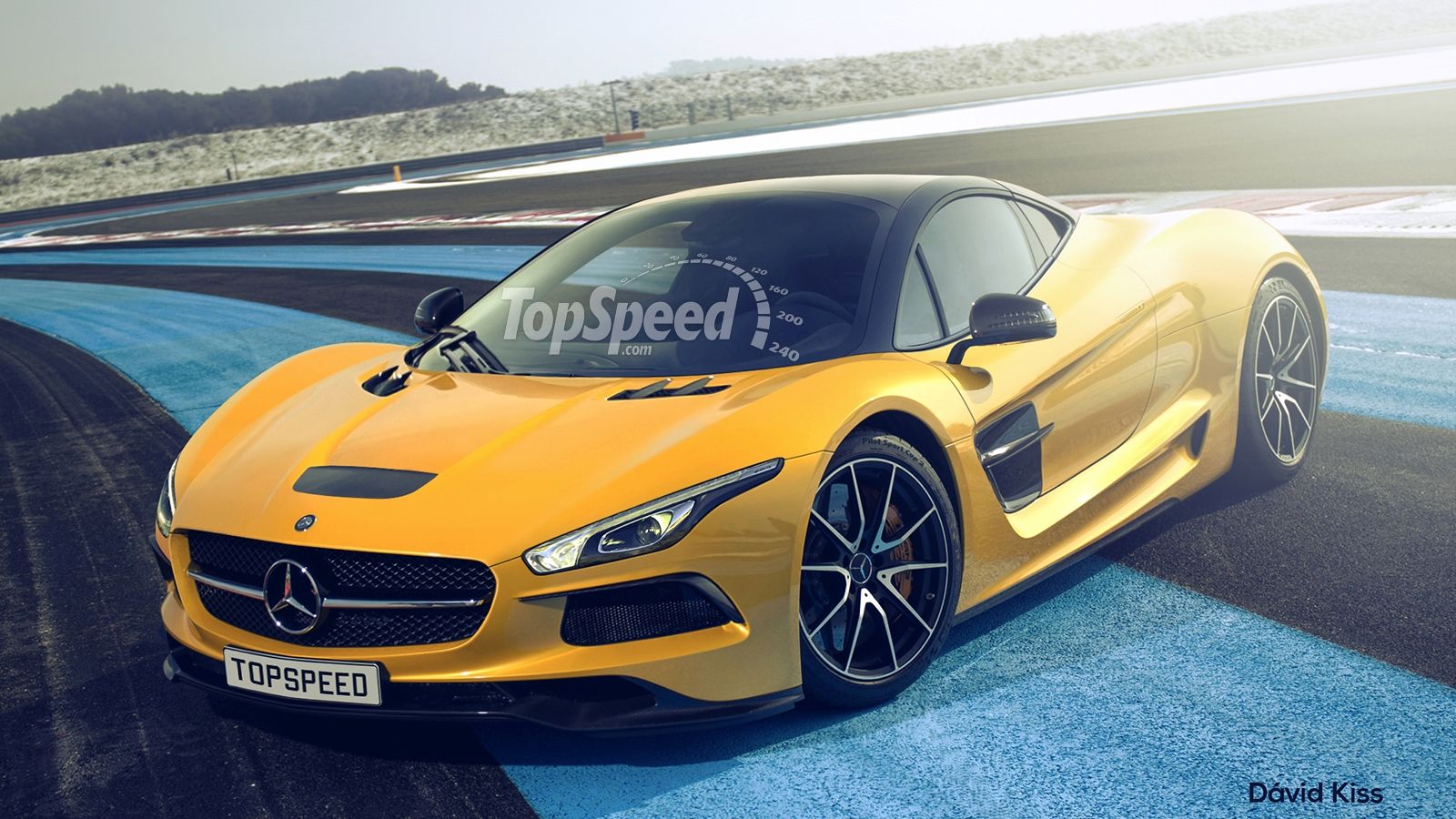So there’s this flaming hot rumor going around that Mercedes is planning to build a 1,300-horsepower hypercar that will make its debut in 2017 as the crown jewel of AMG’s 50th anniversary celebrations. German magazine Autobild first reported on this rumor, saying that the unnamed machine of apocalyptic proportions will feature a 2.0-liter four-cylinder engine that will be tuned to deliver an astounding 1,000 horsepower to go along with a pair of electric motors, each coming with 150 horsepower. It’s a wild car by any stretch of the imagination, but it’s still a rumor and when it comes to rumors involving hypercars of this power, it’s probably best to have the salt shakers handy at this point.
Still, these are also the types of rumors that are hard too ignore. At one point in time, nobody would have thought that Aston Martin and Red Bull would collaborate on its own hypercar, and yet here are, waiting with baited breath to see what the now confirmed AM-RB 001 hypercar is going to be all about. The Autobild report about the Mercedes hypercar adds that the model will be named the AMG R50 as a possible nod to AMG’s 50th birthday. It’s also rumored to feature a carbon fiber monocoque and four-wheel steering just like the one found on the recently unveiled AMG GT R. A target weight of 2,886 pounds was also thrown around, as is the use of prototype race cars as the design inspiration of the hypercar. The car's estimated price, according to Autobild, is around $2 to $3 million.
Make no mistake, the rumored details about the “AMG R 50” are staggering, even if the validity of it all is still up in the air. So instead of trying to decode this potentially segment-altering development, I’m going to try to instead make a case for why Mercedes should or shouldn’t build a 1,300-horsepower hypercar. The popular sentiment may be on the side of doing it, but there’s also an alternative discussion to be made on why it may not be that much of a good idea to get into this market, at least not yet.
Continue after the jump to read the full story.
Why Mercedes should build a 1,300-horsepower hypercar
For a company that once famously said that the “race for perfection has no finish line,” this is one way that Mercedes could let the entire auto industry know that it’s not shying away from the growing number of hypercars entering the segment. As expensive as these cars are and as many hours are spent developing the technologies that will be used in them, these cars are made because automakers want to show off. It’s a vanity and pride thing as much as anything else and I’ve never seen Mercedes as the type to let others have the spoils while it sits meekly in the corner.
If anything, no automaker is arguably in a better position to build a hypercar than Mercedes. It’s got the finances to pull it off and it has the team to do it. Most importantly, it has a Formula One team that’s been dominating the sport for the last three years. Surely, that outfit has the technology in place to make a positive contribution on the development of this hypercar, should it come to that.
To be clear, I’m firmly in the camp of Mercedes building this hypercar. It sounds incredible by the simple descriptions that have been given to it and if it does carry that kind of power on a four-cylinder engine with two electric motors, it could turn very well turn into one of the fastest and most powerful cars in the world. That’s well worth the price of having to build it.
Why Mercedes should not build a 1,300-horsepower hypercar
This is a little trickier case to make, especially after stating my position above. But like everybody else, I’m speaking from a position where it’s not going to matter if the car becomes a hit or not. It’s a far different place to be in if your decisions spells the difference on whether the car gets made or not. That’s where people like AMG boss Tobias Moers find themselves. It’s also worth noting that Moers has, on more than one occasion, shot down the possibility of Mercedes going into the supercar and hypercar markets.
I don’t know if the circumstances have changed within Mercedes and AMG to make his previous comments moot, but at the end of the day, there really needs to be a good business case for Mercedes to do this and as Moers previously said, it’s harder for a mainstream brand like Mercedes to jump into the hypercar market compared to the more established brands like Ferrari, McLaren, and Porsche.
So unless Mercedes is prepared to do that, something that the company has given no indication of in the past, now may not be the time to start checking on how deep that pool is.


